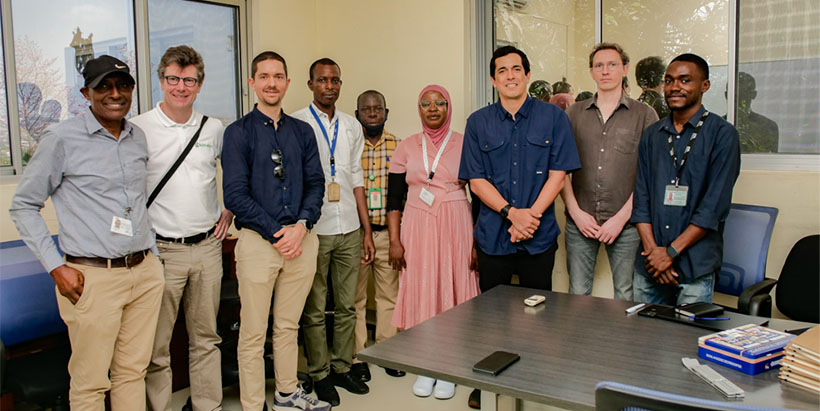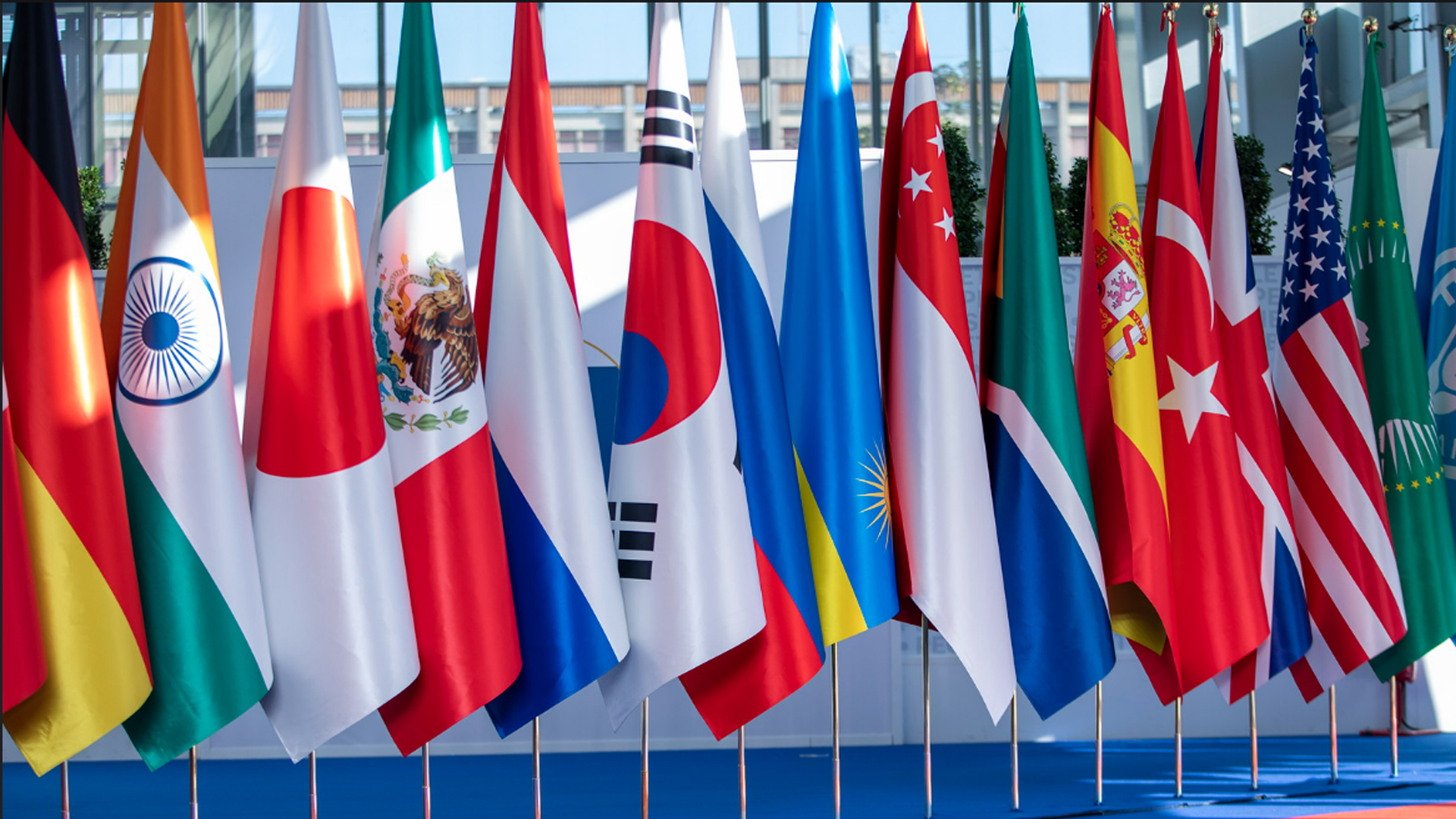IITA, Biotalys, and Nigeria’s Ministry of Environment meet to strengthen biocontrol solutions for food security

IITA, Biotalys, and Nigeria’s Ministry of Environment meet to strengthen biocontrol solutions for food security
IITA–CGIAR hosted a three-day visit with scientists from Biotalys and representatives of Nigeria’s Ministry of Environment from 20 to 22 January 2025. The visit aimed to strengthen collaborative efforts in developing protein-based biocontrol solutions to address food security challenges in Nigeria. A key focus of the visit was to track the progress of a research project led by IITA graduate student Michael Iduh. His studies focus on identifying the causal agents of cowpea leaf-spot disease by Cercospora across different agroecological zones in Nigeria. The findings from this research will provide a foundation for developing targeted sustainable biocontrol solutions for cowpea farmers through the cutting-edge protein-based technology of Biotalys. The project involves the exchange of fungal genetic resources, which requires approval from the Ministry of Environment to comply with appropriate Access and Benefits sharing under the Convention of Biodiversity.
Apart from the laboratory activities in Pathology and Mycotoxin/Aflasafe Unit, IITA–CGIAR facilitated interactions with other units for the visiting Biotalys scientists and Ministry of Environment officers. The visitors interacted with scientists from cowpea, maize, yam, cassava breeding programs, and GRC, Virology, and GHU.
Hafsat Adeyemi, Assistant Chief Scientific Officer, Nigeria’s Ministry of Environment, expressed her appreciation for the training and its broad impact. Because of the importance of the project, Adeyemi assured the IITA and Biotalys teams of the delegate’s full support in obtaining the approval of the material transfer permits to facilitate the research work. In addition, she highlighted the session on aflatoxins in maize and groundnuts as particularly eye-opening, recognizing the importance of mitigating this toxin in Nigerian food systems. “We’ve seen and learned a lot that we will take back with us, one of which is the danger of aflatoxins in maize,” she said. “We assure you of our full support and collaboration with IITA to disseminate crucial information about aflatoxins and IITA’s Aflasafe products to combat it. We can confidently stand as Aflasafe ambassadors now.”
Alejandro Ortega-Beltran, IITA–CGIAR Senior Plant Pathologist, emphasized the need for broader collaboration, proposing roundtable discussions among IITA, Biotalys, the Federal Ministry of Agriculture and Food Security, the Federal Ministry of Health and Social Welfare, and the Federal Ministry of Environment. “Bringing together stakeholders from these ministries will create a more cohesive and effective approach to addressing food security and food safety challenges,” he stated. He also suggested organizing a workshop on cowpea research funded by the Gates Foundation to keep stakeholders informed on cowpea innovations.
Carlo Boutton, Biotalys’ Chief Scientific Officer, welcomed the Ministry’s commitment to expediting the permit process. “Allowing the exchange of pathogens and pests for research has long-term economic value. The sooner we can conduct critical research, the sooner we can develop effective solutions that benefit farmers and the wider agricultural industry,” he remarked.
All training participants agreed to continue the collaboration to allow scientific innovations translate into practical solutions for smallholder farmers. As discussions and research progress, this partnership will contribute to deliver an effective, sustainable biocontrol solution to cowpea producers, ultimately improving food security in Nigeria and beyond. Nigerian Ministry of Environment to allow scientific innovations to translate into practical solutions for smallholder farmers. As discussions and research progress, this partnership will contribute to delivering an effective, sustainable biocontrol solution to cowpea producers, ultimately improving food security in Nigeria and beyond.
Contributed by Folake Oduntan and Alejandro Ortega-Beltran
Related Stories:
Aflasafe technology showcased at international, high-level biocontrol events
Transferring aflatoxin biocontrol experiences to partners from Mali, Niger, and Pakistan



.jpeg)